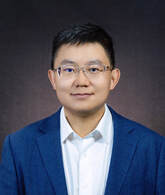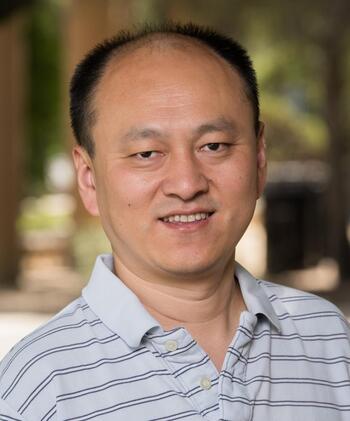Carbon Trading vs. Direct Allocation: Theory and Application to China’s Carbon Abatement with Professor Guojun He
Carbon Trading vs. Direct Allocation: Theory and Application to China’s Carbon Abatement with Professor Guojun He
Tuesday, February 15, 20224:00 PM - 5:15 PM (Pacific)
Academic Seminar | Zoom Meeting
Registration Required
Tuesday, February 15, 2022 | 4:00-5:15 pm Pacific Time
Carbon Trading vs. Direct Allocation: Theory and Application to China's Carbon Abatement
The Emission Trading System (ETS) and Direct Allocation Scheme (DAS) are two popular schemes to achieve a given target of carbon abatement. We compare their welfare implications under incomplete information and with local externalities of such abatement (e.g., changes in air pollution). We show that the ETS addresses incomplete information but not heterogeneous local externalities; the opposite is true for the DAS. Therefore, the policy choice depends on the relative significance of incomplete information and heterogeneous local externalities. We apply the theoretical results to the Chinese data and discuss why a national ETS can be undesirable.
About the Speaker

Guojun He is an economist working on environmental, development, and governance issues. Currently, he is an associate professor in Economics and Management & Strategy at the University of Hong Kong (HKU). He holds a concurrent appointment at the Energy Policy Institute of the University of Chicago (EPIC) and serves as the research director of its China center (EPIC-China). He is a co-editor of Journal of Environmental Economics and Management and China Economic Review.
His research tries to address some of the most challenging problems faced by developing countries and seeks to produce empirically-grounded estimates for optimal policy design. The majority of his work focuses on understanding the benefits and costs of environmental policies, while he also has a broader research interest in development and governance issues. His work has been published in leading economics journals (like QJE, AER: Insights, AEJ: Applied) and science journals (like PNAS, Nature: Sustainability, Nature Human Behavior, and The BMJ).
He has won multiple academic awards, including the Best Paper Award from China Health Policy and Management Society, Masahiko Aoki Best Paper Award Nomination, and notably two Gregory Chow Best Paper Awards from the Chinese Economists Society. He was named a Young Scientist by the World Economic Forum.
He obtained his Ph.D. degree in Agricultural and Resource Economics from U.C. Berkeley and received undergraduate education from School of Economics at Peking University. Before joining HKU, he worked at Hong Kong University of Science and Technology and Harvard University.
Seminar Series Moderators:

Scott Rozelle is the Helen F. Farnsworth Senior Fellow and the co-director of Stanford Center on China's Economy and Institutions in the Freeman Spogli Institute for International Studies and Stanford Institute for Economic Policy Research at Stanford University. For the past 30 years, he has worked on the economics of poverty reduction. Currently, his work on poverty has its full focus on human capital, including issues of rural health, nutrition and education. For the past 20 year, Rozelle has been the chair of the International Advisory Board of the Center for Chinese Agricultural Policy, Chinese Academy of Sciences (CAS). Most recently, Rozelle's research focuses on the economics of poverty and inequality, with an emphasis on rural education, health and nutrition in China. In recognition of this work, Dr. Rozelle has received numerous honors and awards. Among them, he became a Yangtse Scholar (Changjiang Xuezhe) in Renmin University of China in 2008. In 2008 he also was awarded the Friendship Award by Premiere Wen Jiabao, the highest honor that can be bestowed on a foreigner.

Hongbin Li is the Co-director of Stanford Center on China's Economy and Institutions, and a Senior Fellow of Stanford Institute for Economic Policy Research (SIEPR) and the Freeman Spogli Institute for International Studies (FSI). Hongbin obtained his Ph.D. in economics from Stanford University in 2001 and joined the economics department of the Chinese University of Hong Kong (CUHK), where he became full professor in 2007. He was also one of the two founding directors of the Institute of Economics and Finance at the CUHK. He taught at Tsinghua University in Beijing 2007-2016 and was C.V. Starr Chair Professor of Economics in the School of Economics and Management. He founded the Chinese College Student Survey (CCSS) in 2009 and the China Employer-Employee Survey (CEES) in 2014.
Hongbin’s research has been focused on the transition and development of the Chinese economy, and the evidence-based research results have been both widely covered by media outlets and well read by policy makers around the world. He is currently the co-editor of the Journal of Comparative Economics.
Register Here
Register once to receive the Zoom meeting link that will be used for all lectures in this series.
